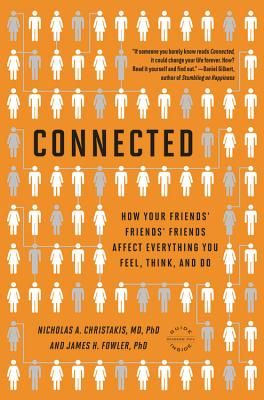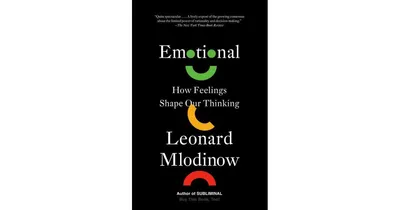Home
Becoming Attached: First Relationships and How They Shape Our Capacity to Love
Loading Inventory...
Barnes and Noble
Becoming Attached: First Relationships and How They Shape Our Capacity to Love
Current price: $39.95


Barnes and Noble
Becoming Attached: First Relationships and How They Shape Our Capacity to Love
Current price: $39.95
Loading Inventory...
Size: Paperback
*Product Information may vary - to confirm product availability, pricing, and additional information please contact Barnes and Noble
The classic text on the history of attachment theory and its impact on the field of child development, now in a fully expanded and updated edition.
A century ago, leading childcare experts were miles apart in their recommendations to parents. Behaviorists warned against spoiling children with too much affection ("Never hug and kiss them, never let them sit in your lap") whereas geneticists argued that affection matters little because our genes alone determine who we are. Into this fray in the late 1930s stepped John Bowlby, the British psychoanalyst whose work with psychologist Mary Ainsworth would overturn the world of child development and shape its trajectory for the next 70 years.
Becoming Attached
tells the story of one of the great undertakings of modern psychology: the hundred-year quest to understand what children need and what constitutes good parenting. In this expanded and fully updated new edition, psychotherapist and journalist Robert Karen chronicles the origin of a groundbreaking idea - attachment theory - and its resounding impact on the fields of developmental psychology, psychiatry, and psychoanalysis. Karen charts the historic course of attachment theory as it gained notoriety and support-and not a little controversy. Do "securely attached" children fare better as adults than "insecurely attached" ones? What do children truly need to thrive? Can babies handle prolonged separations? Presenting the origin story of an important idea in child development, this new edition also reveals how attachment research has exploded worldwide in the past several years as evidence for the benefits of secure attachment continue to grow. Karen explores the cutting-edge science examining the relationship between infants and their caregivers - such as the hidden world of synchronized play, fMRI studies that reveal neural patterns of parental and receptive love, and the link between attachment and genetics, wherein early experience changes the expression of genes. Karen also tells a dramatic story of scientists at work and at war, what happens when a theory such as attachment becomes complicated by political and economic pressures, and how its entanglement with gender roles and equity in the workforce continue to overshadow research to this day. Karen shares anecdotes drawn from his own practice to illuminate the challenges many adults face in overcoming insecurities that may originate in infancy and childhood, and how resulting harmful relationship patterns may be quashed.
Cementing its place as a classic text of child development and its rich history,
has much to say about both child and adult life, as readers will find it impossible to read without reflecting on their own lives as children, parents, and intimate partners in love or marriage.
A century ago, leading childcare experts were miles apart in their recommendations to parents. Behaviorists warned against spoiling children with too much affection ("Never hug and kiss them, never let them sit in your lap") whereas geneticists argued that affection matters little because our genes alone determine who we are. Into this fray in the late 1930s stepped John Bowlby, the British psychoanalyst whose work with psychologist Mary Ainsworth would overturn the world of child development and shape its trajectory for the next 70 years.
Becoming Attached
tells the story of one of the great undertakings of modern psychology: the hundred-year quest to understand what children need and what constitutes good parenting. In this expanded and fully updated new edition, psychotherapist and journalist Robert Karen chronicles the origin of a groundbreaking idea - attachment theory - and its resounding impact on the fields of developmental psychology, psychiatry, and psychoanalysis. Karen charts the historic course of attachment theory as it gained notoriety and support-and not a little controversy. Do "securely attached" children fare better as adults than "insecurely attached" ones? What do children truly need to thrive? Can babies handle prolonged separations? Presenting the origin story of an important idea in child development, this new edition also reveals how attachment research has exploded worldwide in the past several years as evidence for the benefits of secure attachment continue to grow. Karen explores the cutting-edge science examining the relationship between infants and their caregivers - such as the hidden world of synchronized play, fMRI studies that reveal neural patterns of parental and receptive love, and the link between attachment and genetics, wherein early experience changes the expression of genes. Karen also tells a dramatic story of scientists at work and at war, what happens when a theory such as attachment becomes complicated by political and economic pressures, and how its entanglement with gender roles and equity in the workforce continue to overshadow research to this day. Karen shares anecdotes drawn from his own practice to illuminate the challenges many adults face in overcoming insecurities that may originate in infancy and childhood, and how resulting harmful relationship patterns may be quashed.
Cementing its place as a classic text of child development and its rich history,
has much to say about both child and adult life, as readers will find it impossible to read without reflecting on their own lives as children, parents, and intimate partners in love or marriage.


















